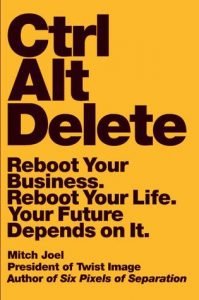This book is a bit dated because Ctrl Alt Delete is probably not the typical keystroke combination that people would use to reboot their devices these days. It shows in the examples used.
Take for instance Kickstarter, which has turned out to be a double-edged sword. Outdated are also Klout (a service that was shut down in 2018) and Nike’s FuelBand. Even SitOrSquat, a clever app that was bought by Charmin, does not seem to be maintained anymore.
The author admitted as much in the last chapter, saying that:
“Some of the business cases may not have unfolded as I had hoped. Some of the businesses that I have written about may not even be in business anymore. That doesn’t change the narrative of this story.”
Granted, but it doesn’t excuse the author from drinking too much Kool-Aid when he postulates that fixed machines (such as your refrigerator) will be mobile (i.e. engaged, networked, and connected through the one-screen world), or for that matter, they should be.
These aside, the book is well organised and easy to read as the author breaks down chapters into digestible chunks with a summary of lessons at the end of the chapter to jog your memory.
Chapter 4 (“Sex with Data”) provides an interesting look into how to go beyond analytics, data, and consumer intimacy to a marriage between brands and consumers.
But ultimately, this marriage is all about business. The author warned: “Users and Brand’s have to know and always remember that these services are free because they are looking to make money from the information that comes with usage. This is the social contract between the service provider and the users (take it or leave it). While complaining and petitioning might change certain aspects of a business, it will never sway companies from making money or growing their data sets.”
Chapter 10 (“Work the Space”) will resonate with those of us who are working through the COVID-19 pandemic.

